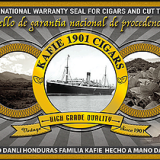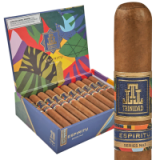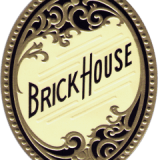The cigar has evolved in many ways since its inception. It has become a symbol of luxury, status and sophistication throughout history. From the days of Christopher Columbus introducing it to Europe in 1492, to today’s modern varieties that come in various shapes, sizes and flavours, cigars have certainly come a long way.
Contents:
What makes cigars unique is the variety available to choose from. There are different types of wrappers used such as Connecticut Shade or Sumatra wrappers; fillers like Dominican tobacco or Nicaraguan tobacco; binders which can be Cuban-seed or Honduran tobaccos; and even flavouring agents such as Cognac or Creme de Menthe added for an additional kick. This allows for smokers to personalize their experience by selecting different combinations that best suit their palate.
Cigar smoking also offers opportunities for socializing with others who share similar interests – at special events, cigar lounges and on online forums where aficionados discuss their favourite brands. Moreover, there is much we can learn from the evolution of cigars: how they are produced (from growing the plants to rolling them); what makes certain blends more desirable than others; why certain countries produce better quality cigars than others; and why cigar smoking remains popular despite increased regulation over the years.
In short, understanding how cigars have changed over time provides insight into not only the craftsmanship involved in making them but also how they are enjoyed around the world today – from those looking for a premium smoke during special occasions to those seeking something new every day. Cigars offer an array of options with endless possibilities for all levels of smokers – no matter if you’re just starting out or an experienced connoisseur.
Uncovering the Art of Cigar Making
Cigar aficionados have long been privy to the complexity of cigar making, and its evolution over time. From Cuban cigars, to Nicaraguan cigars, each region has crafted its own unique style of cigar based on a variety of factors like climate and soil composition. But even more interesting is the artistry that goes into creating these stogies – from picking out the right tobaccos to rolling them just right in order to achieve optimal flavor and smoking experience.
The key components that go into crafting a great cigar are time-honored techniques passed down through generations of master blenders. A good example is aging – many people don’t realize that cigars need time to reach their peak flavor profile. The aging process can vary depending on the type of tobacco used as well as where it was grown, but typically takes anywhere from three months up to two years before it’s ready for sale. This gives aficionados an appreciation for how much care goes into every hand-rolled stick they purchase and enjoy.
Another aspect that plays a role in developing top-notch smokes is fermentation – this process helps bring out all the subtle nuances and flavors within each individual leaf so when combined together create something truly special with complex aromas and taste profiles. It also helps prevent molding or unwanted bacteria growth which could ultimately ruin an entire batch if not done correctly. While some processes may seem simple enough at first glance, there are numerous steps involved in order for one to make a world-class cigar worthy of any connoisseur’s humidor collection.
A Journey Through History
Cigars have been around for centuries, tracing their history back to the Mayans in Mesoamerica. Throughout this journey, cigars have evolved from a spiritual offering to the gods of ancient civilizations to an iconic symbol of status and luxury that transcends time and space. In order to understand the evolution of cigars over time, it is essential to look at its humble beginnings.
The earliest documentation of cigars dates back to 2nd century BC where they were used as offerings during religious ceremonies by tribes in Mexico. During this period, cigar-like objects were made out of plant material such as maize husks or palm leaves which were rolled up and smoked. It was not until later on when Christopher Columbus discovered tobacco did Europeans begin using it as a smoking device; although originally intended for medicinal purposes only.
By the 16th century, cigars had become increasingly popular throughout Europe with each country having its own unique style and method of production – ranging from Spain’s signature long-filler leaf wrapping technique to Cuba’s distinct short-filler approach that uses whole leaves bound together by twine. As people moved away from traditional methods and began experimenting with different shapes, sizes and flavors, cigar production soon became an art form all its own with connoisseurs carefully crafting masterpieces one puff at a time.
Today, cigars remain highly sought after across the world – particularly among those who appreciate their complex flavor profiles created through blending various tobaccos together like fine wine makers do with grapes – making them more than just a simple indulgence but rather a timeless piece of history worth savoring every last drag off of.
The Social Impact of Smoking
The social impact of smoking cigars has been profound throughout history. From the mid-1500s, when tobacco was first introduced to Europe from the Americas, it quickly became a status symbol for wealthy Europeans who would proudly puff on their prized possession in public and as part of gatherings with friends and family. Smoking cigars soon became a way for people to show off their wealth and status, which meant that only those with money could afford them.
This had far reaching implications in terms of class divisions between smokers and non-smokers; suddenly there was an element of snobbery associated with smoking cigars that extended beyond just its taste or smell. People were judged not just by what they owned but also by what they smoked, making it a source of pride amongst cigar aficionados. For example, during 19th century France wealthy members of high society such as Napoleon III were known to smoke expensive Havana cigars while mingling at soirees attended exclusively by the elite class.
The popularity of cigars continued well into the 20th century when Cuban exports made them more accessible to many different socio-economic classes around the world. Although smoking is now seen as largely unfashionable in much of Western culture due to health concerns surrounding cigarettes, one cannot deny that it has shaped social norms over time through its association with prestige and wealth. As we look back on centuries worth of changes in our attitude towards cigar smoking, it’s clear that this activity carries far more than just gustatory pleasure – it can tell us a lot about our changing values across different cultures over time too.
Exploring Alternatives to Tobacco
As we observe the evolution of cigars, it is important to note that there are alternatives to traditional tobacco-based products. Although smoking has been a popular pastime for centuries, many people have shifted their focus to exploring new options that offer a similar experience without the health risks associated with combustible tobacco products.
One such alternative is e-cigarettes or “vapes” as they are often referred to. These devices use an electronic heating element to heat nicotine liquid into vapor form which can then be inhaled like smoke from a cigar. Unlike conventional cigars, these devices do not burn any material and therefore no smoke is produced. Instead of relying on burning tobacco leaves for flavor and nicotine content, vapers can customize their vaping experience by choosing different flavored liquids with varying levels of nicotine concentration.
In addition to e-cigarettes, some manufacturers now produce herbal blends specifically designed for rolling in paper or wrapping in leaf wrappers and enjoyed just like traditional cigars. The herbs used in these blends range from wild lettuce and mugwort (commonly used in tea) to mullein and rosemary – all completely non-tobacco based plants offering unique flavors and aromas when smoked or vaped instead of combusted plant matter found in conventional cigars.
Discovering New Flavors
Cigars have come a long way since their inception. Nowadays, it is easier than ever to find cigars with a variety of different flavors. With the evolution of the cigar industry, there are now more options than ever before for cigar aficionados to explore and discover new flavor combinations that they may never have considered previously.
The great thing about trying out new flavors in cigars is that you don’t necessarily need to invest in an expensive box of cigars or even take part in a tasting event. Instead, there are plenty of affordable sampler packs available on the market that allow you to try out several different types of cigars without breaking the bank. This makes it much easier for beginners and experienced smokers alike to experiment with various blends and discover new favorites without spending too much money.
Many online retailers offer discounts when you buy larger quantities of cigars at once, so if you find something particularly appealing after sampling some different flavors, then you can stock up on them and save some money in the process as well.
Cigars in Modern Times
The cigar industry has come a long way since its inception in the 16th century. Nowadays, cigars are no longer simply a luxurious pastime for the wealthy; they have become an integral part of many people’s lives. In modern times, there is much more to appreciate about cigars than just their rich flavor and aroma. Cigars can be used as a tool for relaxation and contemplation, providing smokers with an opportunity to take time out from their hectic lifestyles. Smoking cigars can also provide insights into different cultures around the world – from understanding traditional Cuban culture to learning about the finer points of rolling techniques used by skilled torcedores (cigar rollers).
Cigars have even found their way into popular entertainment venues such as clubs and bars. There are now several “cigar bars” located throughout major cities that specialize in providing patrons with premium-quality cigars alongside cocktails or other alcoholic beverages. Many cigar aficionados find this type of atmosphere particularly enjoyable, as it allows them to savor some fine smokes while enjoying good company and conversation. This trend has been on the rise over recent years, with more people embracing this unique lifestyle choice every day.
In addition to being enjoyed socially, cigars have also evolved into works of art within themselves; many manufacturers now offer custom-made pieces crafted specifically for customers’ preferences and tastes. For instance, custom-made boxes containing various blends and sizes can be tailored according to each individual smoker’s specifications – making them perfect gifts for special occasions or milestones celebrations alike. From individually wrapped samplers containing varying strengths and flavors right through to beautifully designed humidors filled with rare vintage sticks – cigar lovers now have access to an array of choices when it comes to experiencing new smokes without ever having leave their home or office!
Health Implications of Cigar Use
Smoking cigars can have serious health implications for individuals. Cigar smoke contains many of the same toxins as cigarette smoke, including nicotine and carbon monoxide. Even if someone does not inhale cigar smoke, the chemicals in it can still be absorbed through the skin or mucous membranes of their mouth, nose and throat. In addition to causing cancer, cigar smoking has been linked to heart disease, lung diseases such as chronic obstructive pulmonary disease (COPD) and other respiratory problems. Smoking multiple cigars a day increases the risk of developing these conditions even more significantly than smoking one cigar per day.
The effects of second-hand smoke from cigars are also very real. Those who are exposed to cigar smoke in an enclosed space may experience similar health issues that smokers do – eye irritation, headaches and coughing fits among them – due to breathing in high levels of carcinogens released from burning tobacco products. Research suggests that children who live with parents who use cigars are more likely to suffer from asthma or bronchitis compared with those living in non-smoking households.
There is evidence that indicates links between oral cancer and frequent cigar use; this includes both cancer of the lips as well as cancer within the mouth itself. Smokeless tobacco products such as snuff have also been found to cause precancerous lesions inside the mouth known as leukoplakia which can eventually develop into full blown cancers over time if left untreated.
The Appeal of a Classic Tradition
Cigars have been around for centuries, and throughout this time they have remained a classic tradition that has withstood the test of time. While modern cigar enthusiasts may be familiar with the latest trends in shape, size and flavor, it is important to remember what makes cigars so appealing in the first place.
Smoking a cigar is more than just about puffing away – it’s an activity steeped in history, culture and ceremony. It can be considered an art form that requires skill, patience and dedication to master. From picking out quality leaves to rolling them into beautiful shapes, there are many intricate steps involved in making a high-grade cigar. This respect for craftsmanship speaks volumes as to why cigars remain popular today – they are often seen as symbols of sophistication or class due to their unique production process.
On top of this, smoking a cigar has come to represent much more than just enjoying a good smoke – it can also symbolize celebration or reflection when shared among friends or family members. Whether you’re gathered around celebrating special occasions such as weddings or anniversaries or quietly reflecting on life over a few puffs during an evening gathering at home; there’s something undeniably calming about taking part in such classic traditions that we can learn from and carry forward through generations.











